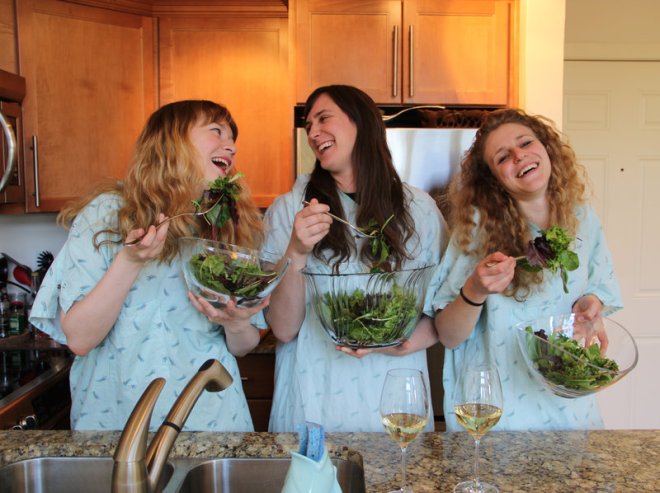Welcome back to Woman Crush Wednesday! Summer, the season for grilled meat (or tofu or eggplant, as the case may be) is well underway. Should you find yourself firing up the grill this midsummer’s night, please ponder this: Why do we think of meat-eating as a masculine act and not a feminine one? As Grist’s Eve Andrews discusses this week, the concept of “clean eating” can actually be a big ol’ mess. The act of choosing a big, juicy burger over a dressing-free salad can be a fraught one. We’re all about making thoughtful and well-informed choices when it comes to eating, but every once in a while you just have to Treat Yo Self — and that should be okay.
So go ahead and treat yo self with our crushes of the week:
- Camas Davis, owner and founder of the Portland Meat Collective, and Stacy Peck of the Seattle-based, all-girls punk rock band Childbirth. They spoke to us about the connections between feminism, meat-eating, and the body politics of “clean eating.” Check out the rest of Grist’s new special series, Meat: What’s smart, what’s right, what’s next here. (Grist)

The members of the Seattle band Childbirth. From left to right: Bree McKenna, Stacy Peck, Julia Shapiro.Shaine Truscott
- Kimberly Ennico, Cathy Olkin, Alice Bowman and the other women involved in the New Horizons space mission. In addition to recording color footage of Pluto and monumental amounts of data about its composition and atmosphere, this space mission likely has the most women involved of any in NASA’s history. (The Atlantic)
- Lori and Ruth Babcock, who run Tieton Farm and Creamery in Tieton, Wash. The tiny rural town of 1,200 people, once economically depressed and devoid of local businesses, is now a center for artisans and creative ventures. Behold the power of the rural sharing economy! (Grist)
- Daphne Mayes, a graduate student at the University of Kansas who studies wild bees. Emerging research into “bee hotels” — networks of bamboo and paper tubes designed to provide shelter for more than 4,000 species bees native to North America — could shed led on their mysterious declines. (Civil Eats)
Stay tuned for next week’s roundup!




